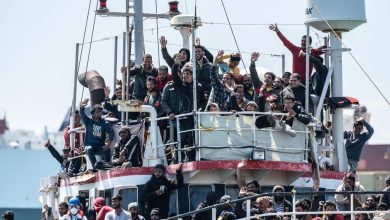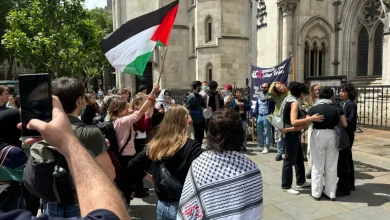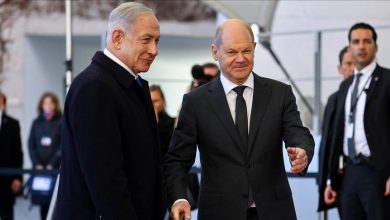Iran warns Israel against aiding US mission in Strait of Hormuz

Iran has warned Israel against aiding a United States-led maritime mission in the Gulf, saying it reserved the right to confront such a “clear threat”.
The comments on Friday by foreign ministry spokesman Abbas Mousavi came after Israeli media reported that Israel’s Minister of Foreign Affairs Israel Katz had told colleagues in a closed-door meeting on Tuesday that the country was assisting the US-led coalition with intelligence and other unspecified aid.
Israeli officials have declined to confirm or deny the reports about Israel’s involvement in the naval mission that the US has said is needed to “combat Iranian aggression” in the strategically important Strait of Hormuz.
In a statement, Mousavi said Iran would view any support offered by Israel as a “clear threat to its security, sovereignty, and territorial integrity, and a crisis-provoking and destabilising element” in the region.
“The Islamic Republic of Iran reserves the right to counter this threat and defend its territory within the framework of the country’s deterrence and defensive policy, and will have no hesitation in translating it into action as part of its defensive policies,” he added.
Strait of Hormuz at centre of tensions
Washington has been looking for allies for the naval coalition, but last week Germanyruled out participating in the mission, prompting a frustrated response from US officials.
Tensions have soared in recent months around the Strait of Hormuz, where about 20 percent of the world’s oil passes through.
The friction is rooted in US President Donald Trump‘s decision in May last year to unilaterally withdraw Washington from a landmark nuclear deal signed in 2015 between world powers and Iran.
Since then, the US has reinstated sweeping sanctions against Tehran as part of a “maximum pressure” campaign and has also beefed up its military presence in the region.
The tensions escalated in May, when the US accused Iran of sabotaging tankers in the shipping route, allegations denied by Iran.
In June, Iran downed a US military surveillance drone in the Gulf with a surface-to-air missile. Iran says the drone was in its airspace, but Washington says it was in international skies. Trump said at the time he had been prepared to attack three Iranian targets in retaliation but called off the operation at the last minute because such a response would not have been “proportionate”.
Iran’s relations with the United Kingdom have also been strained since British authorities early last month seized an Iranian tanker off the coast of Gibraltar on suspicion it was shipping oil to Syria in breach of European Union sanctions. Tehran denied the allegation, accusing the UK of acting at the behest of the US and demanding the immediate release of the ship.
On July 19, Iran seized a British-flagged tanker in the Strait of Hormuz, claiming that it had collided with a fishing boat and violated international law.
Meanwhile, Mousavi on Thursday condemned an international military gathering hosted by Bahrain, and attended by the US and France, as a “hostile measures against Tehran” and urged its Gulf neighbour to “seek a constructive approach instead of inciting against Iran.”
Bahrain’s foreign minister responded by telling Iran to “stop issuing threats and committing any acts that may cause tensions.”




